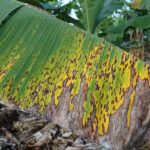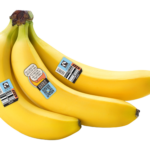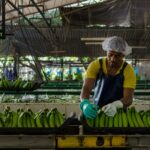Drug trade, dumping severely impacting banana pricing, says Del Monte

The drug trade and dumping in markets such as Europe are having a significant impact on the banana pricing environment at a regional level, according to Fresh Del Monte Produce's (NYSE: FDP) chief executive officer Mohammad Abu-Ghazaleh.
"Unfortunately we see a lot of drug smuggling in banana ships. It means that bananas are becoming an easy commodity for this trade. You find drugs at different ships in different ports," Abu-Ghazaleh said during a webcast after the multinational's results announcement yesterday.
"The banana becomes irrelevant compared to the other cargo inside. This distorts the whole business. And prices that we see in the market in Europe and Russia, it doesn't make any sense.
"What is really distorting this business is not supply and demand, but other reasons that we don't have any control of."
Abu-Ghazaleh explained the drug smuggling had been ongoing, and relates to a macro vision of the banana industry.
"When you see prices in certain markets that have US$4-5 a box, and that market repeats using the same volume, it makes you wonder how anyone can survive.
"What is lacking is more intervention from the government and government control is needed. But we as a company cannot do much about this," he said.
Additionally, soft label banana brands are getting dumped at extremely low prices in global markets.
"When you have 20% more bananas coming into the market where there is no room for it, you just dump it there. Generally speaking you're seeing pressure from commodity bananas being priced at irrational levels over a longer period," he said.
"You cannot buy anything for the same price as you would buy bananas today. Today you're buying bananas for US$0.50 a pound. If you look at any other kind of fruit in the market, you can buy a pound of grapes for US$4.
"The pricing for bananas is very low at the regional level, and that is something banana suppliers are really affected by. Retailers won't take a higher price, and that’s where there is a catch 22.
Abu-Ghazaleh said Del Monte simply had to live with the market and do the best it could.
"We aren't losing money on bananas, but we should be making more money on bananas," he said.
Del Monte's pricing woes and results
Lower selling prices in several of the company's product lines offset an increase in the company's net sales, in large due to exchange rate variances of US$116 million for the full year and US$18 million for the fourth quarter of 2015.
Abu-Ghazaleh was surprised this type of pricing occurred considering the recent structural change in the industry such as Dole going private and Chiquita joining a private company. These moves should have yielded better pricing, according to the CEO.
"We were expecting these structural changes to the ownership of our competition to help yield a more rational pricing environment, but this has not happened. So far we haven't seen anything," Abu-Ghazaleh said.
"If you look at the big picture, 2015 was a very tough year in terms of bananas. In the first two months of the year we had a big shortage. An example, we had to buy an additional eight loads of bananas from Ecuador at a very high price, compared to the first two months of this year when we only bought one. But those are the dynamics of the industry.
"And at the end of the first year there was an explosion of production in the farms. We had an unexpected avalanche of supply which we had to put into markets in the Gulf region, Iran. So this really affected pricing. We were expecting a much better year than what we ended up with.
"But we know the reasons and we're going forward. We will make it up," he said.
Abu-Ghazaleh said this year looked positive so far and that pricing had improved compared to the year prior.
"We see drought in the Philippines which uses volume going forward. We see volumes [are] more rational this year.
"[The] banana season will not repeat itself from one year to the next. We haven't seen any type of climatic catastrophes over the last four years or five actually. So you never know. All of a sudden there could be a huge shortage or an oversupply. But we are hopeful that this year will be good."
Photo: www.shutterstock.com












































